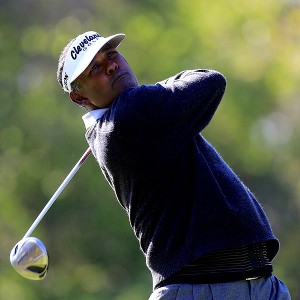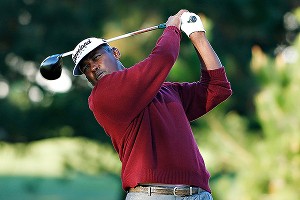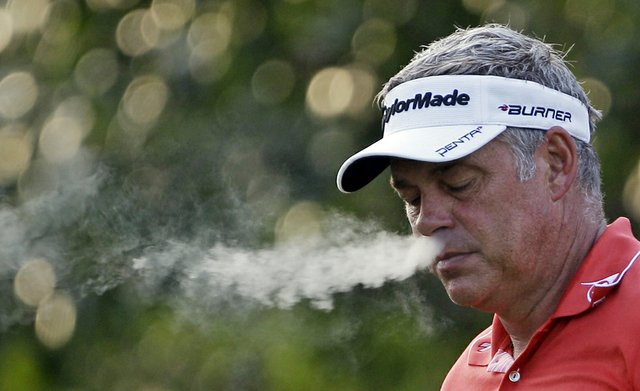Vijay In Fine Spirits! "No comment to you. No comment to anybody."
/Bob Harig calls the PGA Tour's deliberate handling of Vijay Singh's admission to violating the tour's doping policy "pathetic" and hopes Singh contends so that the World Golf Hall of Famer can display his grumpy attitude for all the world to see.
 Harig writes:
Harig writes:
Singh would not even give a PGA Tour media official a few cursory comments about his round.
"No comment to you. No comment to anybody," were Singh's relayed words.
It would be great if he won the tournament and said the same thing.
It would be even better if he captured his fourth major championship at the Masters, becoming the oldest major champion in the game's long history.
What then?
Harig goes on to remind us that Commissioner Finchem said there was "no time urgency" in this case of a player admitting to violating the rules. What could possibly take so long to process that claim?
No doubt, the folks at WADA are watching this farce play out.
















